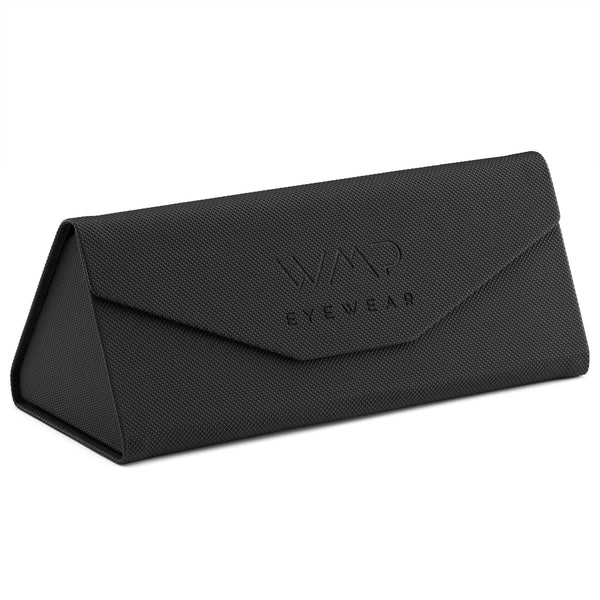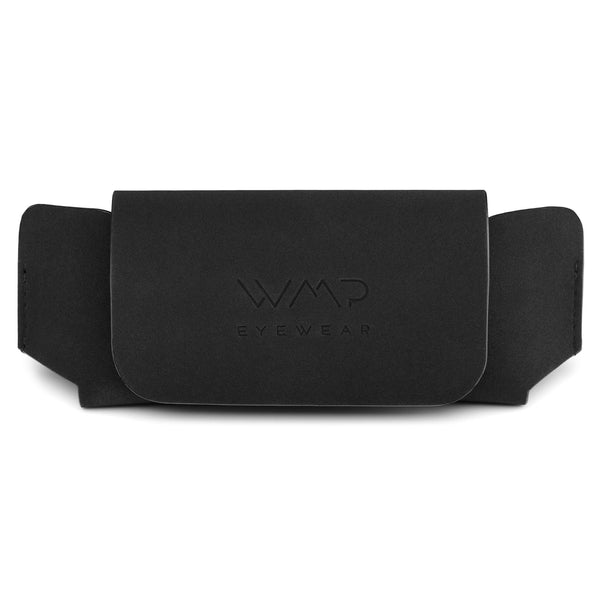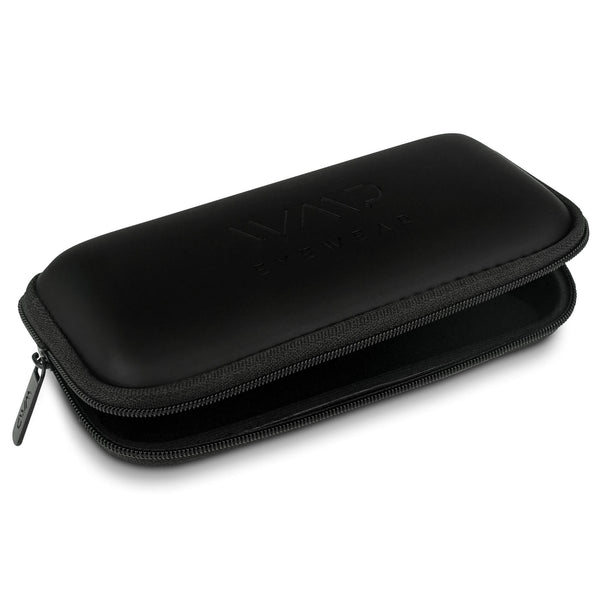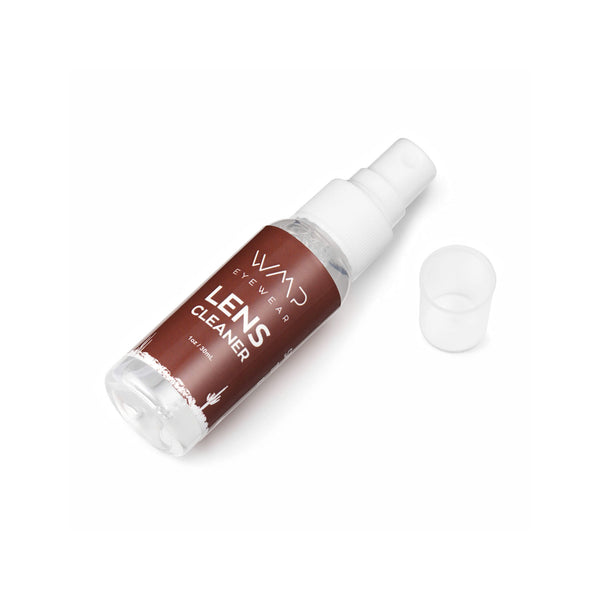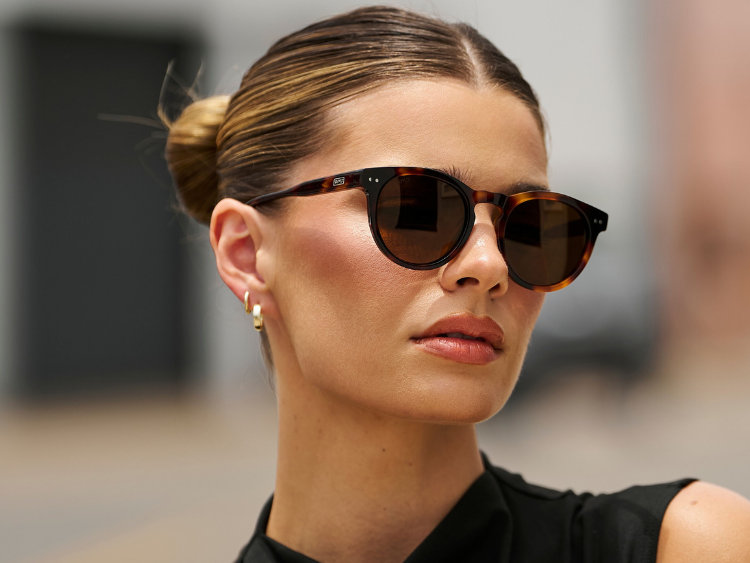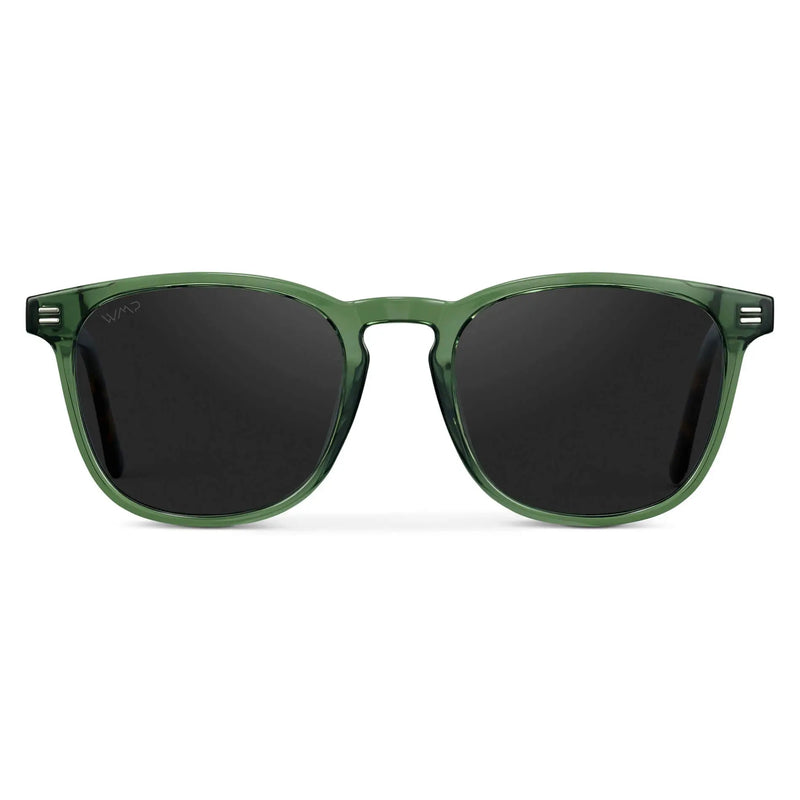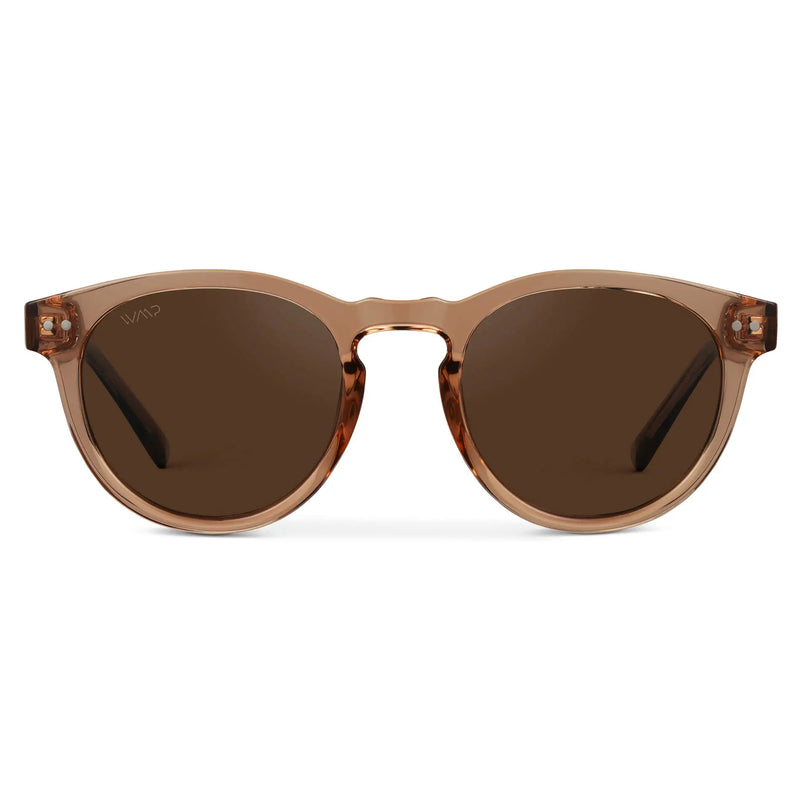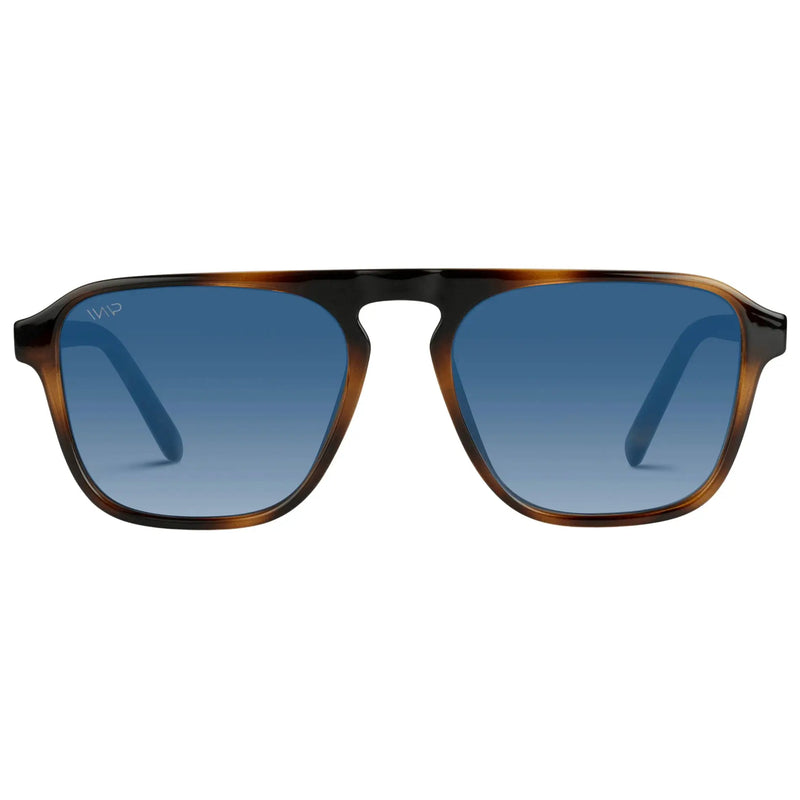8 Reasons You Should Wear Sunglasses | The Importance of Quality Lenses

This may have happened to you: it’s a cloudy day at the beach. You’re sitting on your towel spending time with friends in a tank top, and you don’t apply sunscreen because the sun’s not out. But when you get home, you have a gnarly sunburn.
Most people are familiar with the use of sunglasses in summer. But even if the sun is not out, UV rays still break through and damage our skin and eyes. That’s why you need to wear sunscreen any time you’re outside and you should wear sunglasses as well to protect your vision.
Avoid excessive UV exposure and wear sunglasses year-round for these eight reasons.

Why Wear Sunglasses for Year-Round Protection
Sunglasses are synonymous with the spring and summer months but you should be wearing them during the winter and fall as well. Anytime there’s natural light outside, that means there are UV rays and you should be wearing sunglasses with UV-blocking lenses, regardless if it’s cloudy or sunny.
1. Protect from Elements
If you’ve ever tried to walk into the office on a windy day and got dirt in your eyes, you know how uncomfortable it can be. You should wear sunglasses all year round to protect yourself from the elements. Sunglasses block wind from causing discomfort like watery eyes or getting bits of sand in your eyes.
Sunglasses also help keep water out of your eyes on rainy days and make activities like biking to work safer to do. Bits of dirt flying into your eyes compromises your vision, and you need to be able to see well to bike safely alongside cars and other types of traffic.
2. Prevent Eye Diseases
There are many medical reasons for wearing sunglasses. Sunglasses protect your eyes from UV rays, which cause your eyes to develop several eye diseases, including macular degeneration, cataracts, and photokeratitis. Eye professionals recommend you wear sunglasses to protect yourself from developing these eye diseases.
Macular Degeneration
Macular degeneration (AMD) comes in two forms: dry and wet. In dry AMD, the macula (which is part of the retina) thins over time, making it more difficult to see in the middle of the eyes. In wet AMD, abnormal blood vessels grow and leak, preventing the macula from working properly.
While there’s not a clear reason why AMD develops, doctors recommended a few precautions to prevent it from occurring.
- Wear sunglasses with 100% UVA/UVB protection to prevent excessive exposure
- Don’t smoke
- Exercise regularly and maintain a normal weight
- Eat a diet rich in fresh fruits, vegetables, and fish
Cataracts
Cataracts are spots in your vision that develop when the proteins in your eye lens break down and join together. These worsen over time as more proteins break down.
While it’s normal to acquire cataracts as people age, you can prevent them by wearing sunglasses that offer 100% UV protection and wearing wide-brim hats while in the sun. Also, wear safety glasses to protect your eyes if you work in an industry like construction. And similar to AMD, you should also eat lots of fruits and vegetables in your diet.
Photokeratitis
Photokeratitis is basically a sunburn on your corneas. People experience photokeratitis after an intense amount of sun exposure, like a day outside snowboarding without glasses and they experience constant glare from the snow.
If you experience eye pain or redness, blurry vision, or light sensitivity, you may have photokeratitis. If you think you may have photokeratitis, stay in a dark room inside until the condition goes away. And if it doesn’t go away after a couple of days, you’ll need to schedule an eye exam so the doctor can prescribe eye drops or another type of medicine.
To avoid photokeratitis, wear sunglasses with 100% UV protection every time you’re outside.
3. Improve Vision Clarity
Anytime you’re outside, even if it’s cloudy, you may feel yourself squinting from glare. To improve vision clarity and observe your surroundings comfortably outside, purchase a pair of polarized sunglasses.
Polarized sunglasses block glare by preventing horizontal light (which causes glare) from entering your eyes. Instead, only vertical light comes through, which is more comfortable for our eyes to look at.
4. Reduce Premature Aging
Sunglasses don’t just protect your eyes but they also protect the soft, gentle skin around the eyes. UV rays cause the DNA in the skin to change, which leads to fine lines and wrinkles. The best way to avoid crow’s feet and other signs of eye aging is to wear sunglasses with 100% UV protection anytime you step outside or drive your car.
5. Get Rid of Headaches
While there are lots of causes of headaches, a few that cause problems can be fixed by sunglasses or blue light glasses. Excessive sunlight exposure can cause migraines, so be sure to wear 100% UV-protected ones with polarization to block glare when outside. Sunglasses also cut down squinting, which can cause a headache to develop over the day.
If you suffer from tension headaches, it could be due to blue light on your computer and phone screens. Try a pair of blue light glasses for your work day to prevent blue light from irritating your eyes.
6. Safer Daytime Driving
Driving during the day when it’s bright outside causes you to squint, or compromises your vision when you’re looking straight into the sun. If sunlight causes you to miss a pothole or an object in the road, you could get stuck with a flat tire or hit another car.
Instead, buy a pair of sunglasses with polarized lenses like Harvey, which block glare and feature thick frames to block sunlight from coming in through the sides of your face.
7. Post-LASIK Protection
LASIK surgery changes the shape of your cornea so that you can see better. But after surgery, you need to wear a pair of quality sunglasses with 100% UV protection for at least four weeks. And to protect your improved vision, you should continue to wear UV-blocking sunglasses indefinitely.
8. Upgrade Your Style
One of the benefits of sunglasses is that they add a flash of style to any outfit. Bring yourself back to the 70s with a pair of retro round wireframe sunglasses like Nevada, or add a modern flair with great oversized cat-eye shades like Sophia.

Frequently Asked Questions
When Is the Most Important Time of the Day to Wear Sunglasses?
The most important time of the day to wear sunglasses is between 10 am and 2 pm, which is the time of day when the sun is highest in the sky. However, it’s best to wear sunglasses any time that it’s light out.
Can Wearing Sunglasses Help Prevent Eye Conditions and Diseases?
Yes, wearing sunglasses helps prevent eye conditions and diseases. Sunglasses with 100% UV protection and polarization prevent diseases like cancer, macular degeneration, cataracts, and photokeratitis from developing. And if you have diabetes, sunglasses can help prevent issues including diabetic eyes.
However, you must make sure that the sunglasses you’re wearing offer 100% UVA/UVB protection. Be sure to check the label or production description to specify that it has it. If it doesn’t, you need to purchase a different pair of sunglasses.
Can Wearing Sunglasses Improve Visual Comfort and Reduce Eyestrain?
Yes, wearing sunglasses can improve visual comfort and reduce eyestrain. Purchase a pair of polarized sunglasses with 100% UVA/UVB protection. Polarized sunglasses block horizontal light, which causes glare, so you can see more clearly and won’t strain your eyes while outside.
